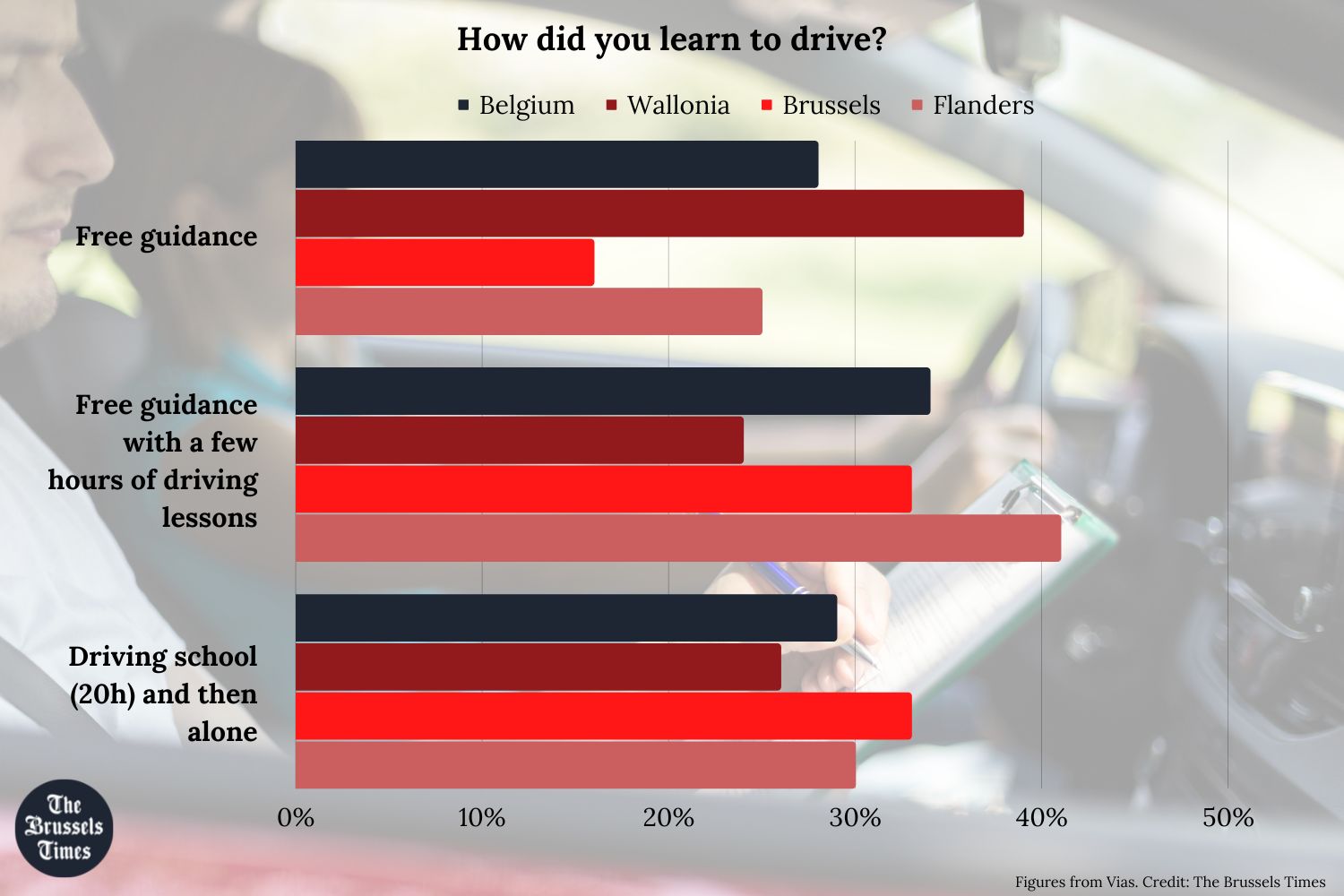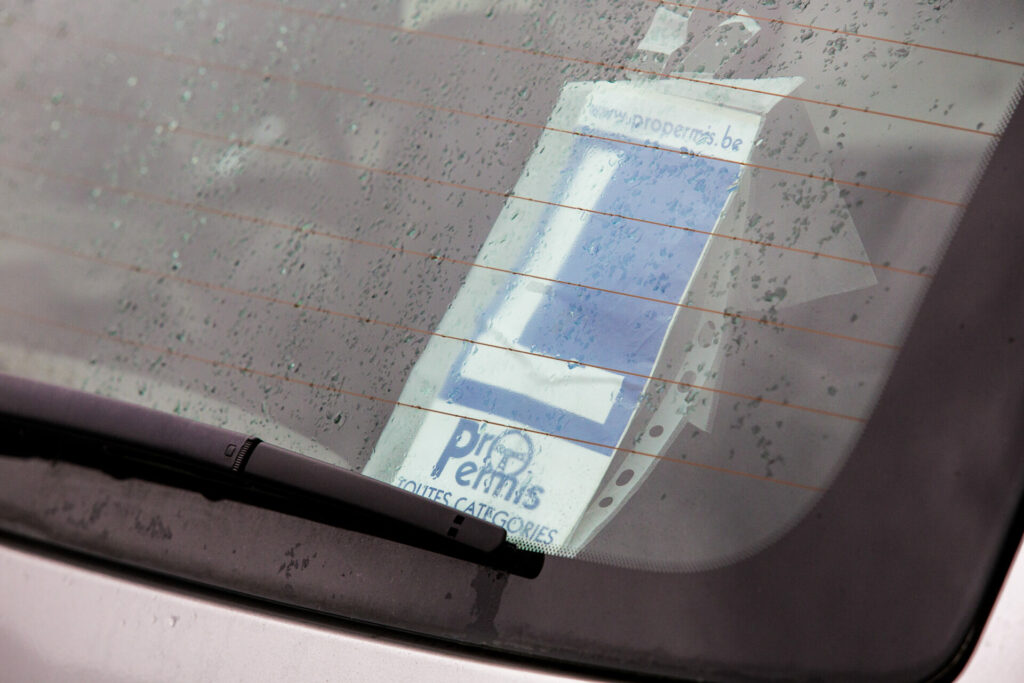Belgium is one of the hardest places in Europe to pass your driving test and over seven in ten young people in Belgium take lessons at a driving school. But in Wallonia, the option of "free coaching" is more popular as a cost-effective alternative.
A total of 71% of young drivers passed their driving test and got a licence with the help of a driving school, according to a survey by the traffic institute Vias among 1,000 young drivers between the ages of 18 and 30. However, there are regional differences.
So-called "free coaching" or being guided by a friend or family member who already has a driving license is more popular in Wallonia (39%) than in Brussels (16%) and Flanders (25%).

Credit: Danica Van der Merwe
In Brussels and Wallonia, most learners will combine several hours of driving school with free practice with a family member or friend: 33% in Brussels and 41% in Flanders opt for this way of learning. In Belgium, 34% take this route.
"This is the most focused training because you can spend a few hours with professional instructors and then keep practising with an experienced driver/supervisor for as long as necessary," Vias noted. The 20-hour driving school formula and then continuing to drive independently is most popular in Brussels.
Wallonia and Brussels also allow learners to take 30 hours of professional driving lessons and then take the exam immediately – an option originally made possible for jobseekers or those with less access to a car via family or friends. 11% of young people in Wallonia and 15% in Brussels prefer this method.
"From a road safety perspective, there are doubts whether a driver at 30 hours will be able to assess all the dangers of traffic and act in the correct way when risky situations arise," Vias noted.
Accident rates, fines and drug use rising
The survey also assessed young drivers' risky behaviour in traffic and their involvement in accidents. The number of fines issued overall to people in this age group has risen slightly since the last comparable survey three years ago (from 27% to 30%).
While half of the cases involve speeding, Vias mainly notes a rise in fines for driving under the influence of alcohol (from 3% to 11%) and drugs (from 1% to 12%), as has been confirmed in previous surveys. This is partly due to an increase in checks, according to Vias, but also due to the "trivialisation of cannabis."
Related News
- How to avoid traffic accidents during winter
- 'Road safety is not always easy': Brussels must stick with Good Move plan
Meanwhile, one in three young people was involved in a road accident as a driver last year, an increase of 9% compared to before the pandemic. A noticeable rise was recorded among the youngest group of drivers aged between 18 and 24 (from 23% to 32%). This can be explained by a lack of practice, according to Vias.
"Young people who got their licences in 2019 or 2020 drove much less due to the restrictions imposed. When everything reopened in early 2022, they faced traffic conditions they were not familiar with," such as busier roads or driving at night with passengers.

